One destination that truly surprised me during my travels is undoubtedly the Andalucian city of Sevilla. With its charming squares, picturesque neighbourhoods and impressive historic architecture, Sevilla, or Seville, is one of those cities that will sweep you off your feet within moments. I strolled around in a constant state of awe, and when I parked myself at one of the many tapas bars to feast on delicious tapas and vino (and people-watching), I was instantly drawn by the city’s magnetic vibe. I’d heard a lot about Sevilla’s beauty but seeing it for real just blew me away!
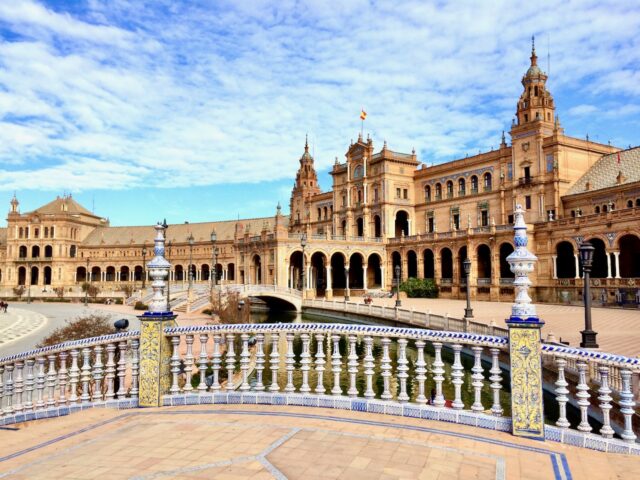
A (very) brief history of Sevilla
Sevilla was founded as the Roman city of Hispalis in the 8th century A.D. on the banks of the Guadalquivir river. The city was later ruled by the Moors for more than 800 years, signs of which are more than evident till today.
The city became an important trading centre after the discovery of the Americas (Christopher Columbus left for his maiden voyage to the Americas in 1492 from a nearby port whilst Ferdinand Magellan began his voyage to circumnavigate the globe from Sevilla in 1519), ushering in Sevilla’s Golden Age, a period of immense wealth and the city blossomed as a cultural centre. During this period under the Castilians, the city developed rapidly. Many magnificent buildings were constructed, much of it in the Mudéjar (a blend of Moorish/Arabian and Gothic influences) and Gothic styles, such as the Seville Cathedral and the Real Alcázar (Alcázar Palace). More architectural wonders, such as the impressive Plaza de España, were constructed in the 1920’s when the city hosted the Ibero-American Exposition.
The historic architecture of Sevilla
These days, the architecture of Sevilla is a string of historic gems, with styles ranging from Gothic to Baroque, Renaissance and Mudejár. I spent three days (which, by the way, is way too short to truly appreciate this city) strolling around and admiring the many historic monuments. Here’s what I found:
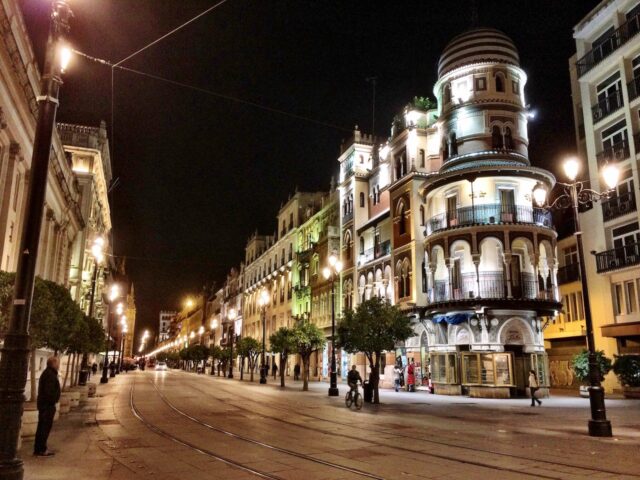
Sevilla Cathedral
The Sevilla Cathedral or Cathedral of Saint Mary of the See was built in the 15th century on the site of an ancient mosque. The mosque’s minaret, La Giralda, was kept and converted into a bell-tower. Upon its completion in the early-16th century, it was the largest cathedral in the world, surpassing Hagia Sophia in Constantinople (Istanbul). It still holds the title of being the largest Gothic church.
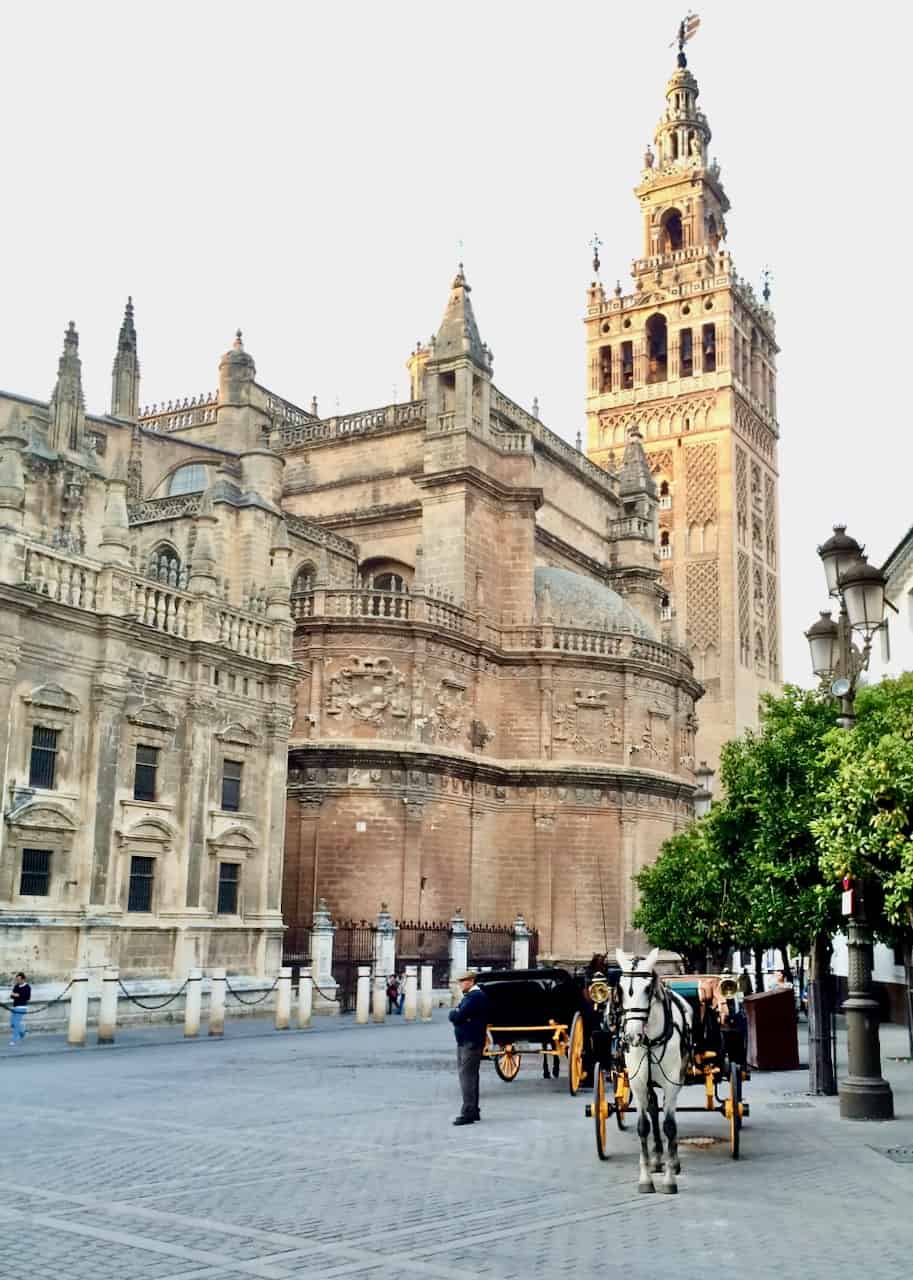
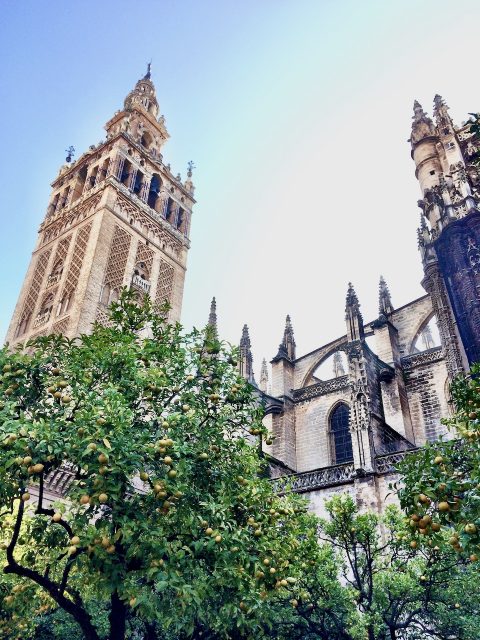
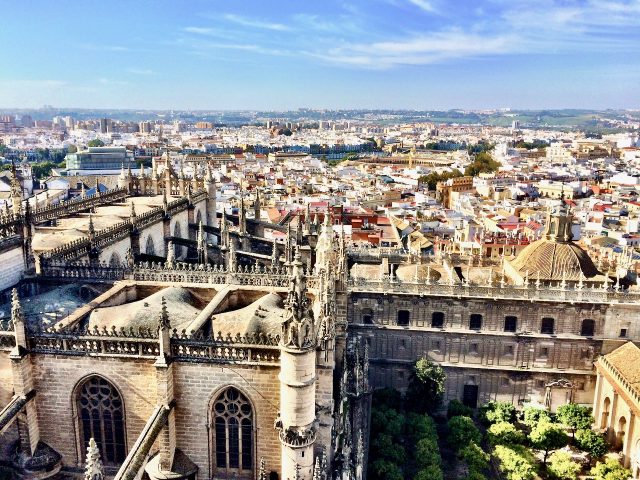
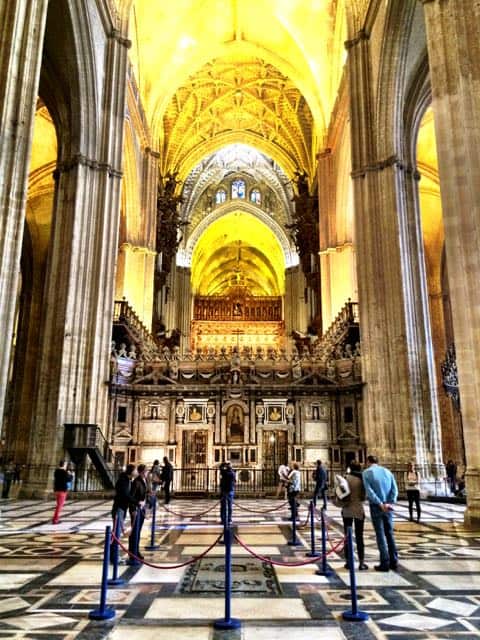
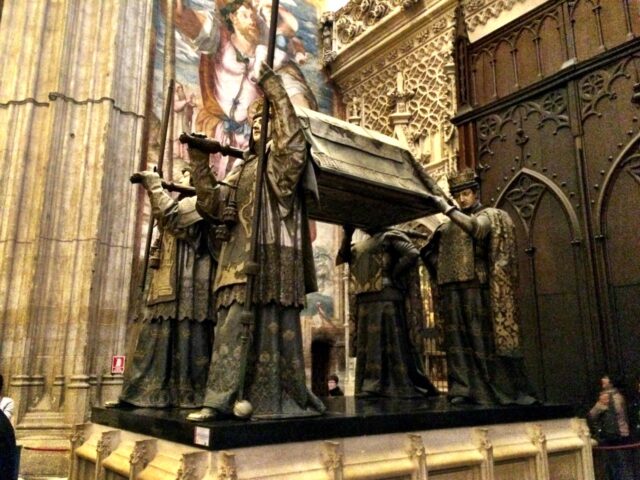
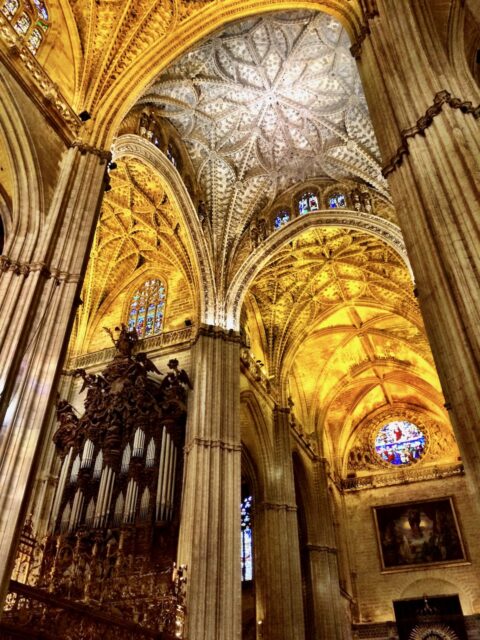
Enjoy a skip-the-line guided tour of the Sevilla Cathedral and Giralda Tower.
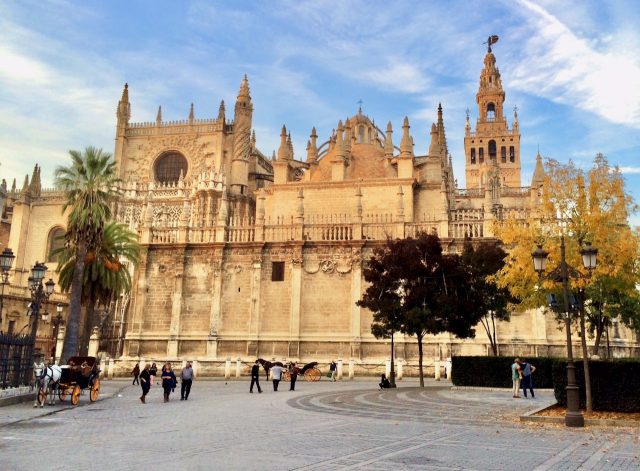
Real Alcázar
The Alcázar Palace is a true architectural gem. With its elaborate Mudejár style, it truly is a sight to behold. The palace was built in the 10th century on the site of an Islamic citadel, and expanded in the 11th and 12th centuries. When the Castilians conquered the city in 1248, they gradually rebuilt parts of the palace complex in the Mudejár style. Numerous scenes from the popular Game of Thrones tv-series were shot here.

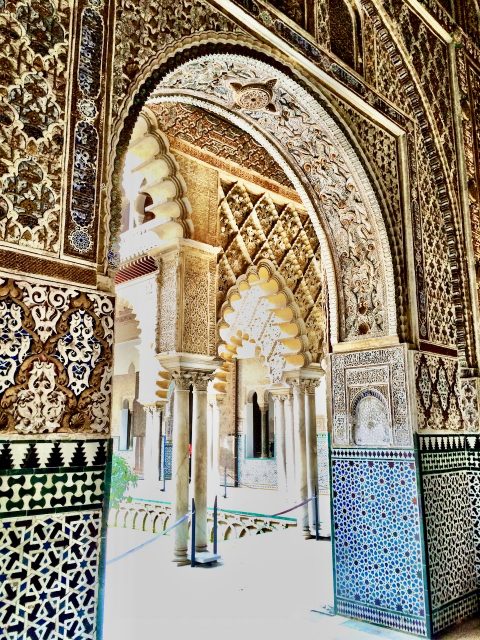
Book a guided tour (including priority entry) of Real Alcazar or a 3-hour skip-the-line guided tour of the Cathedral, Giralda Tower and Real Alcazar.
Iglesia Del Salvador

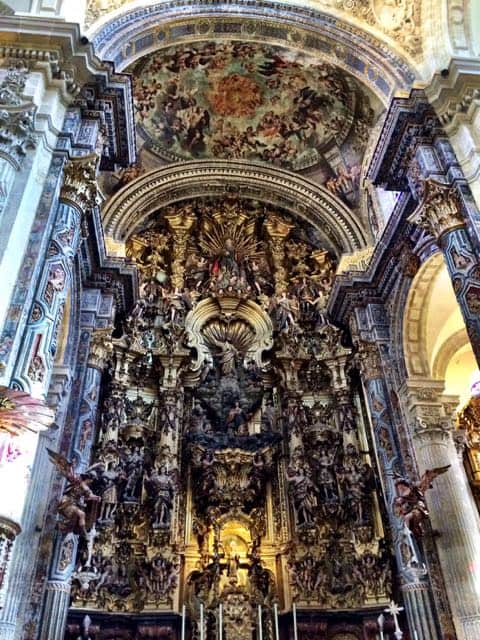
Iglesia de San Ildefonso
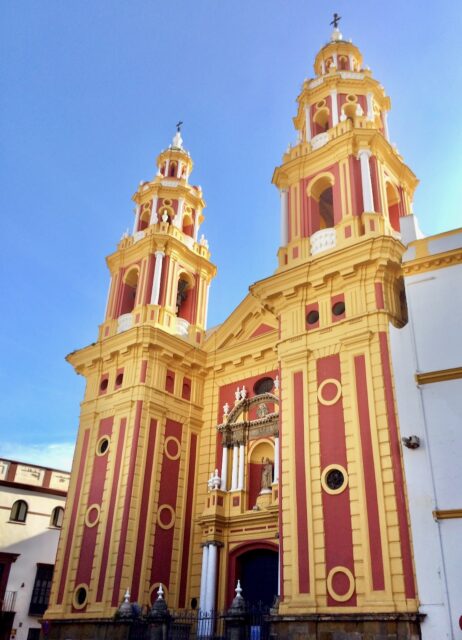
Read about things to do in Sevilla.
Casa Pilatos
A visit to one of Sevilla’s historic noble homes, such as the Casa Pilatos, is a must. The Casa Pilatos is a mix of Renaissance and Mudejár styles.
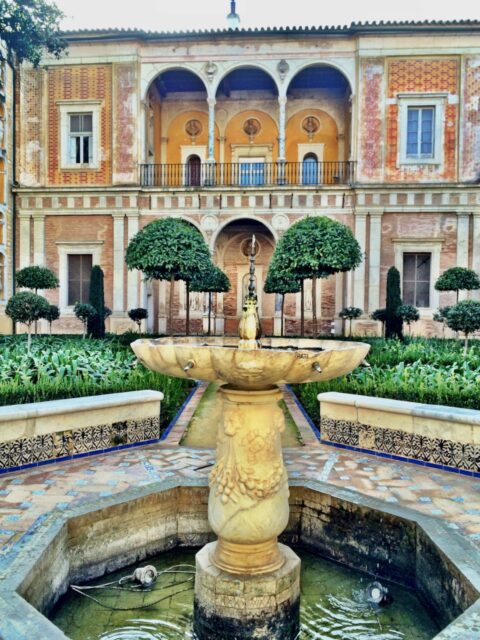
Teatro Lope de Vega
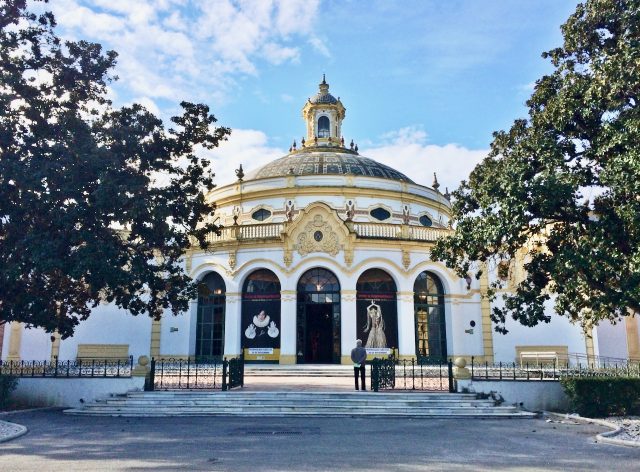
Hotel Alfonso XIII
Hotel Alfonso XIII was built to house the visiting dignitaries during the Ibero-American Exposition in 1929. With its Mudejár-style arches, columns and tile-work, the hotel is an incredible sight and a must-visit, even if you’re not staying there.

Read about my stay at Hotel Alfonso XIII. Check rates for Hotel Alfonso XIII.
Plaza de España
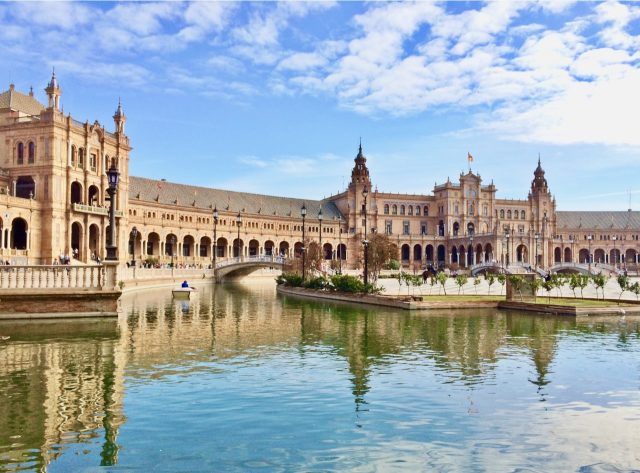
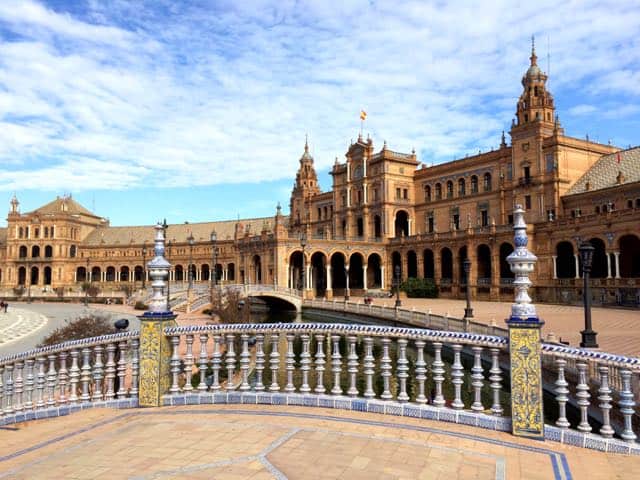
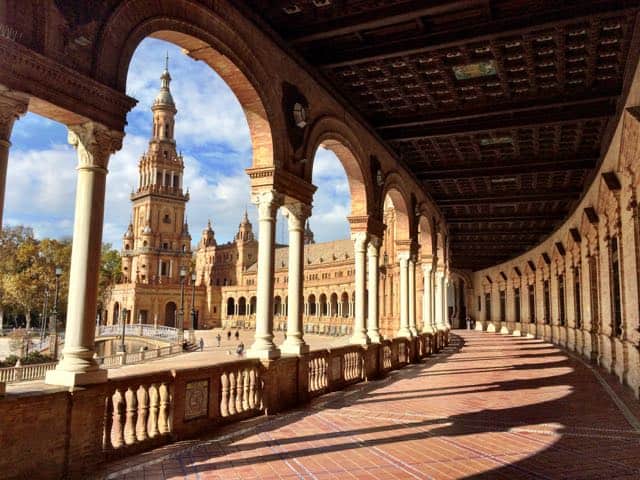
…and something more contemporary: Las Setas
Las Setas (or the mushrooms) are wooden oyster-mushroom-like structures completed in 2011. The city planned to build an underground parking at this site but during the construction, builders stumbled upon ancient Roman ruins. Construction was halted for some years before a competition was held to decide an alternative purpose for the site. Jürgen Mayer, a German architect won the competition with his mushroom design and the complex was completed in 2011.
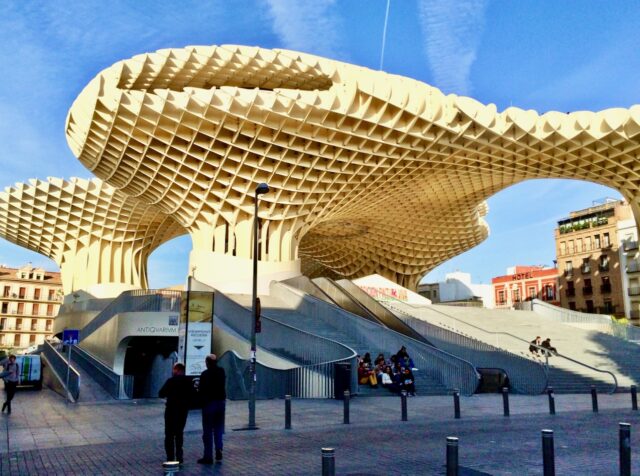
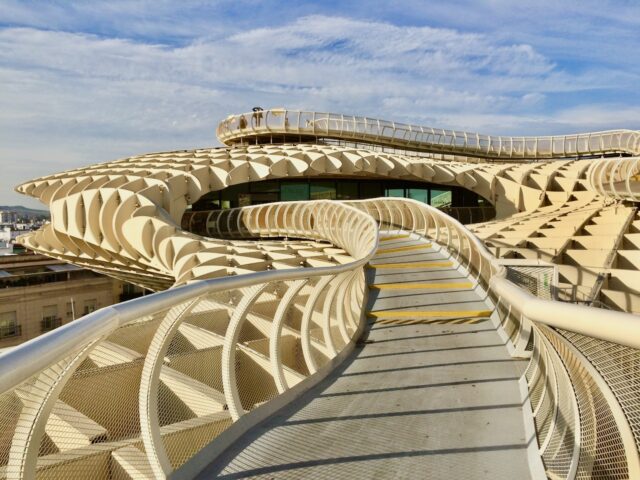
These are just a few of the many architectural gems in Sevilla. I spent three days there and wished I could’ve stayed longer to discover more of the architecture of Sevilla. I’ll be returning soon for sure!
Note: this post is part of the #BookingEpic campaign, a collaboration between iambassador and Booking.com to initiate discussions on and highlight exceptional accommodations. The views expressed above, including the chosen hotel, are mine and mine only.

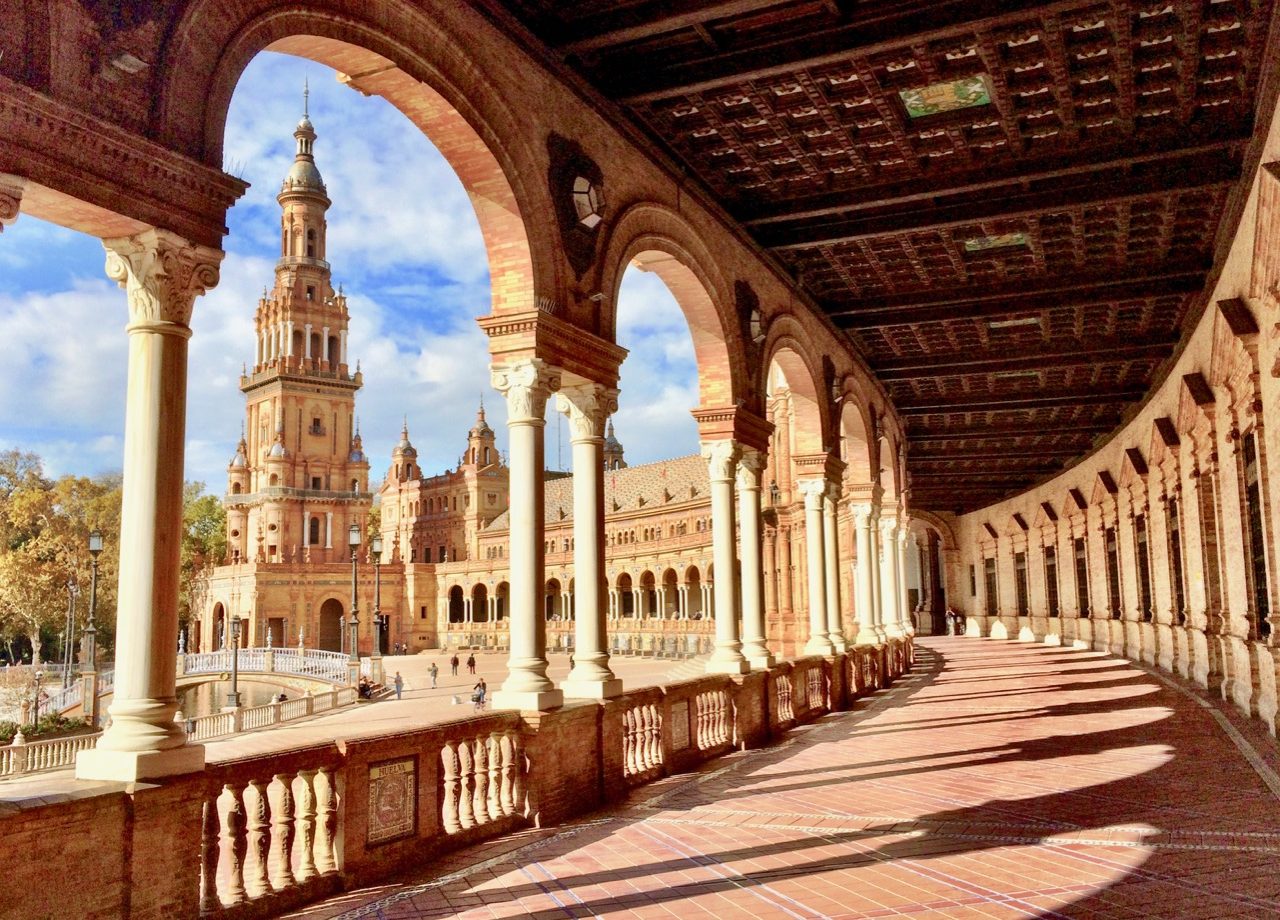

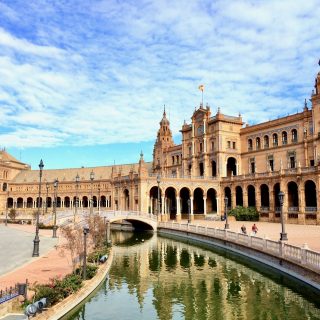
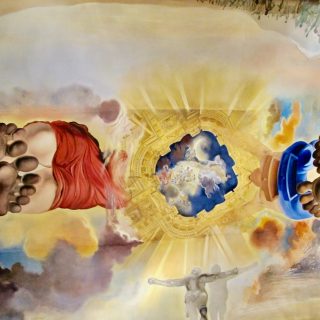
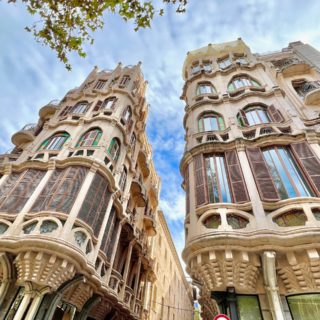
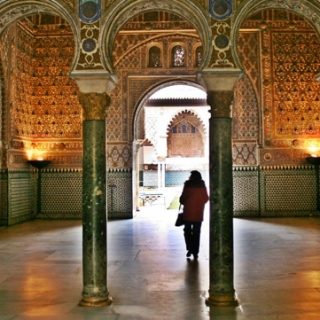






That’s an amazing read, In love with all these beautiful photographs. Wonderful architectures. Thanks for sharing 🙂
[…] Sevilla (or Seville) is an incredibly beautiful city in southern Spain. Packed with historic buildings (such as the breathtaking Cathedral, the exquisite Alcazar Palace and the grand Plaza de España), bustling squares, leafy parks and countless cafés, restaurants and terraces, Sevilla is perfect for a city break. Oh, and you have to experience a flamenco performance! There’s so much to see and do that a long weekend isn’t sufficient. Plan a longer stay, take your time exploring the various neighbourhoods and delve into the city’s colourful history. Read more about things to do in Sevilla, and about the historic architecture in Sevilla. […]
[…] Read about the historic architecture in Sevilla. […]
[…] Read more about the historic architecture of Sevilla. […]
[…] styles, such as the Seville Cathedral and the Real Alcázar (Alcázar Palace)” (source: https://velvetescape.com/historic-architecture-of-sevilla/ ). // […]
[…] Read about the historic architecture in Seville. […]
Wow, so much to see in Seville – I visited many years ago but can only really remember the orange trees! I think I need to head back there soon…….
wow, what a beautiful architecture !! and colors … wanna go there asap!
Hi Selma, I went there in search of an epic accommodation and found an epic city to go with it! Thanks for your comment. 🙂
Cheers,
Keith
How can one city have so many incredible structures? Your hotel wasn’t the only thing epic during your trip to Sevilla!